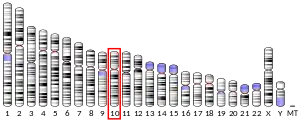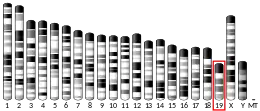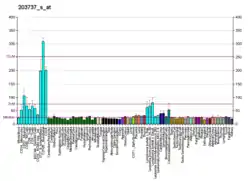| PPRC1 | |||||||||||||||||||||||||||||||||||||||||||||||||||
|---|---|---|---|---|---|---|---|---|---|---|---|---|---|---|---|---|---|---|---|---|---|---|---|---|---|---|---|---|---|---|---|---|---|---|---|---|---|---|---|---|---|---|---|---|---|---|---|---|---|---|---|
| Identifiers | |||||||||||||||||||||||||||||||||||||||||||||||||||
| Aliases | PPRC1, PRC, peroxisome proliferator-activated receptor gamma, coactivator-related 1, PPARG related coactivator 1 | ||||||||||||||||||||||||||||||||||||||||||||||||||
| External IDs | OMIM: 617462 MGI: 2385096 HomoloGene: 9006 GeneCards: PPRC1 | ||||||||||||||||||||||||||||||||||||||||||||||||||
| |||||||||||||||||||||||||||||||||||||||||||||||||||
| |||||||||||||||||||||||||||||||||||||||||||||||||||
| |||||||||||||||||||||||||||||||||||||||||||||||||||
| |||||||||||||||||||||||||||||||||||||||||||||||||||
| |||||||||||||||||||||||||||||||||||||||||||||||||||
| Wikidata | |||||||||||||||||||||||||||||||||||||||||||||||||||
| |||||||||||||||||||||||||||||||||||||||||||||||||||
Peroxisome proliferator-activated receptor gamma coactivator-related protein 1 is a protein that in humans is encoded by the PPRC1 gene.[5][6][7]
The protein encoded by this gene is similar to PPAR-gamma coactivator 1 (PPARGC1/PGC-1), a protein that can activate mitochondrial biogenesis in part through a direct interaction with nuclear respiratory factor 1 (NRF1). This protein has been shown to interact with NRF1. It is thought to be a functional relative of PPARGC1 that activates mitochondrial biogenesis through NRF1 in response to proliferative signals.[7]
Interactions
References
- 1 2 3 GRCh38: Ensembl release 89: ENSG00000148840 - Ensembl, May 2017
- 1 2 3 GRCm38: Ensembl release 89: ENSMUSG00000055491 - Ensembl, May 2017
- ↑ "Human PubMed Reference:". National Center for Biotechnology Information, U.S. National Library of Medicine.
- ↑ "Mouse PubMed Reference:". National Center for Biotechnology Information, U.S. National Library of Medicine.
- ↑ Nagase T, Ishikawa K, Miyajima N, Tanaka A, Kotani H, Nomura N, Ohara O (Aug 1998). "Prediction of the coding sequences of unidentified human genes. IX. The complete sequences of 100 new cDNA clones from brain which can code for large proteins in vitro". DNA Res. 5 (1): 31–9. doi:10.1093/dnares/5.1.31. PMID 9628581.
- ↑ Andersson U, Scarpulla RC (May 2001). "PGC-1-Related Coactivator, a Novel, Serum-Inducible Coactivator of Nuclear Respiratory Factor 1-Dependent Transcription in Mammalian Cells". Mol Cell Biol. 21 (11): 3738–49. doi:10.1128/MCB.21.11.3738-3749.2001. PMC 87014. PMID 11340167.
- 1 2 "Entrez Gene: PPRC1 peroxisome proliferator-activated receptor gamma, coactivator-related 1".
- ↑ Moore, Meredith L; Park Edwards A; McMillin Jeanie B (May 2003). "Upstream stimulatory factor represses the induction of carnitine palmitoyltransferase-Ibeta expression by PGC-1". J. Biol. Chem. United States. 278 (19): 17263–8. doi:10.1074/jbc.M210486200. ISSN 0021-9258. PMID 12611894.
Further reading
- Finck BN, Kelly DP (2006). "PGC-1 coactivators: inducible regulators of energy metabolism in health and disease". J. Clin. Invest. 116 (3): 615–22. doi:10.1172/JCI27794. PMC 1386111. PMID 16511594.
- Yamagata K, Yoshimochi K, Daitoku H, et al. (2007). "Bile acid represses the peroxisome proliferator-activated receptor-gamma coactivator-1 promoter activity in a small heterodimer partner-dependent manner". Int. J. Mol. Med. 19 (5): 751–6. doi:10.3892/ijmm.19.5.751. PMID 17390079.
- Srivastava S, Barrett JN, Moraes CT (2007). "PGC-1α/β upregulation is associated with improved oxidative phosphorylation in cells harboring nonsense mtDNA mutations". Hum. Mol. Genet. 16 (8): 993–1005. doi:10.1093/hmg/ddm045. PMC 2652746. PMID 17341490.
- Gleyzer N, Vercauteren K, Scarpulla RC (2005). "Control of Mitochondrial Transcription Specificity Factors (TFB1M and TFB2M) by Nuclear Respiratory Factors (NRF-1 and NRF-2) and PGC-1 Family Coactivators". Mol. Cell. Biol. 25 (4): 1354–66. doi:10.1128/MCB.25.4.1354-1366.2005. PMC 548005. PMID 15684387.
- Yamamoto T, Shimano H, Nakagawa Y, et al. (2004). "SREBP-1 interacts with hepatocyte nuclear factor-4 alpha and interferes with PGC-1 recruitment to suppress hepatic gluconeogenic genes". J. Biol. Chem. 279 (13): 12027–35. doi:10.1074/jbc.M310333200. PMID 14722127.
- Ota T, Suzuki Y, Nishikawa T, et al. (2004). "Complete sequencing and characterization of 21,243 full-length human cDNAs". Nat. Genet. 36 (1): 40–5. doi:10.1038/ng1285. PMID 14702039.
- Savagner F, Mirebeau D, Jacques C, et al. (2003). "PGC-1-related coactivator and targets are upregulated in thyroid oncocytoma". Biochem. Biophys. Res. Commun. 310 (3): 779–84. doi:10.1016/j.bbrc.2003.09.076. PMID 14550271.
- Strausberg RL, Feingold EA, Grouse LH, et al. (2003). "Generation and initial analysis of more than 15,000 full-length human and mouse cDNA sequences". Proc. Natl. Acad. Sci. U.S.A. 99 (26): 16899–903. Bibcode:2002PNAS...9916899M. doi:10.1073/pnas.242603899. PMC 139241. PMID 12477932.
- Scarpulla RC (2002). "Transcriptional activators and coactivators in the nuclear control of mitochondrial function in mammalian cells". Gene. 286 (1): 81–9. doi:10.1016/S0378-1119(01)00809-5. PMID 11943463.
- Bonaldo MF, Lennon G, Soares MB (1997). "Normalization and subtraction: two approaches to facilitate gene discovery". Genome Res. 6 (9): 791–806. doi:10.1101/gr.6.9.791. PMID 8889548.
This article is issued from Wikipedia. The text is licensed under Creative Commons - Attribution - Sharealike. Additional terms may apply for the media files.




